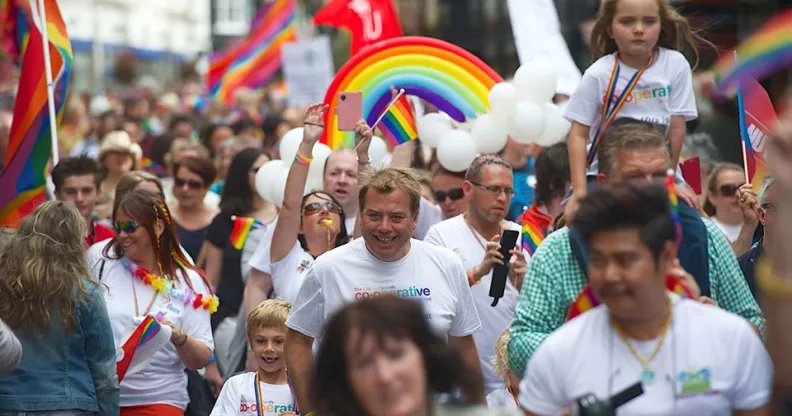The Channel Island of Guernsey will finally start protecting LGBT+ people from discrimination… in 2026

(Channel Islands Pride/ Facebook)
Proposals for anti-discrimination legislation has been published in Guernsey, but LGBT+ people will have to wait until 2026 to be protected.
Guernsey is a crown dependency and part of the Channel Islands, which means it has its own legal system.
The legislation will outlaw discrimination by employers and service providers, but the island is taking a “phased approach” to its introduction to allow businesses time to adjust.
According the Committee for Employment and Social Security (ESS), if approved by Guernsey’s parliament in April, discrimination based on race or disability will become illegal in 2022, although a date has not been set.
Discrimination based on age and religion will be banned in 2024.
But pushed to the back of the queue, protections for LGBT+ people from discrimination based on their sexual orientation will not be implemented until 2026. At the same time, “gender reassignment” will be added to current sex discrimination laws.
According to the proposal: “The Committee would like to stress that the proposed order of phasing should not be interpreted as an indication of whose rights matter more or less – the Committee wanted to develop proposals for a multi-ground Discrimination Ordinance to avoid exactly that impression.”
The vice chair of LGBT+ charity Liberate, Ellie Jones, told the BBC she was “disappointed” with the delay in protecting LGBT+ people in Guernsey from discrimination.
She added: “We don’t really understand why it can’t be introduced at the same time as age and religious discrimination.”
ESS president Michelle Le Clerc said: “We know that there will still be disagreement over the details of this legislation, but it is essential that we protect people’s fundamental rights as soon as possible.”
In 2017, Guernsey became the first channel island to legalise same-sex marriage and was followed by Jersey and Alderney in 2018.
In December 2019, the island of Sark became the final place in the British Isles to legalise same-sex marriage.

